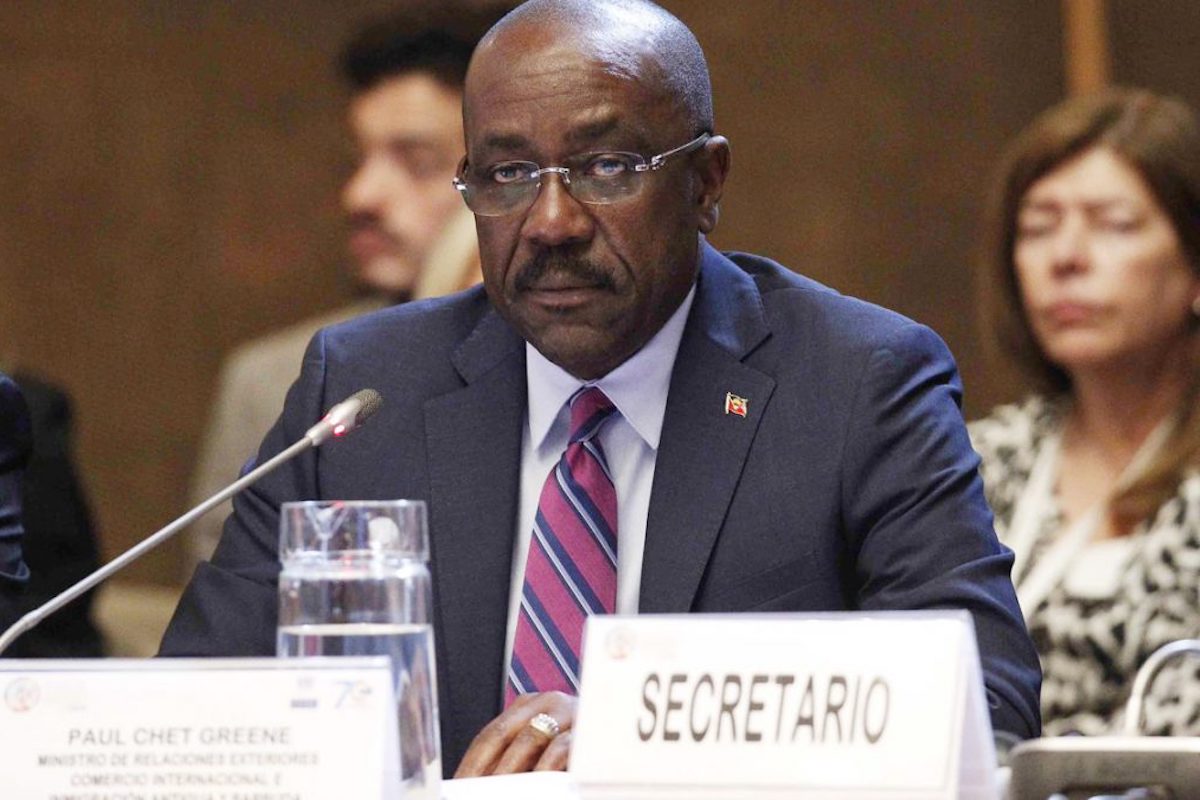Former general secretary of the Antigua and Barbuda Football Association (ABFA), EP Chet Greene, has suggested that countries put laws in place to mitigate against bias and undue interference from international governing bodies in sports.
Greene made the suggestion while discussing the ongoing impasse between ousted president of the Trinidad and Tobago Football Federation (TTFA) William Wallace and the sports international body FIFA.
“I think the time has come where nations will have to decide on the level of authority they give to FIFA with respect to its legal system. It is well and good to have the court of arbitration but I don’t think the court of arbitration can supersede the jurisdiction of independent sovereign states,” he said.
A FIFA panel chaired by its president Gianni Infantino removed Wallace and other senior officials on March 17, citing “extremely low overall financial management methods, combined with a massive debt”.
Wallace had been in office since November of 2019, after winning a vote of local soccer officials against David John-Williams, who served a single four-year term.
“The way FIFA handled it by moving in and putting in place a committee to run the affairs of Trinidad football is challengeable. They may argue as they have done in other instances but again, the independent jurisdiction of Trinidad and Tobago and its governing of all activities in the nation, so does FIFA have that kind of authority. If Trinidad football principals are trying to challenge a matter involving the global authorities in FIFA, then is it right to say that FIFA will have its right or its way in this matter and that any other legal system will not have any say in the matter,” Greene said.
Greene, who is also president of the Antigua and Barbuda National Olympic Committee, is of the view that Wallace’s case was strong and that the current issue could set precedence going forward as to how similar maters are handled.
“Is Wallace wrong to say that FIFA and other international sports organisations have had an abusive relationship with the court of arbitration? Is it wrong to say that the process is not only lengthy but is cost prohibitive of small developing or emerging nations like ours, Trinidad included? These are real questions and I think it is forcing the international sports fraternity to relook some of its positions, to put in your constitutions that the court of arbitration is the final court of settling these disputes,” he said.
William Wallace had retained the services of Dr Emir Crowne and Matthew Gayle instructing them to take the matter to Court of Arbitration for Sport (CAS). However, in late May the attorneys were instructed to withdraw the appeal before CAS fearing ‘institutional bias’.
Subsequently, the matter was taken to the Trinidad and Tobago High Court of Justice.
Since then, Wallace has come under increased pressure from his board following revelations relating to three contracts signed with Avec Sports, national coach Terry Fenwick and Ramesh Ramdhan.
SOURCE: Antigua Observer

